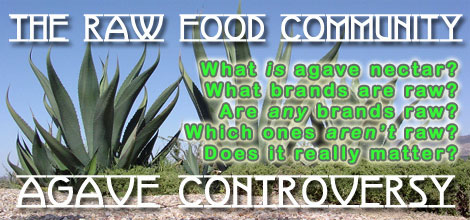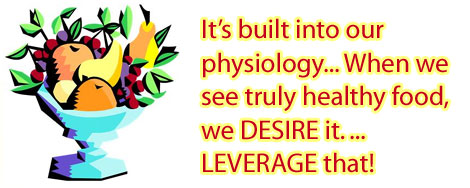
Jim here... Recently, a commenter on this blog, Lannette, mentioned being a cardiac rehab nurse. For some reason, reading this set my wheels spinning in various directions, among them onto the topic of meat consumption in the world. To begin, I'd like to recap something I'd said in response to her:
... it *astounds* me how people joke about heart health where I work. People around here routinely return from medical exams and actually adopt rather mischievous grins when they reveal how high their bad cholesterol levels are. It's like they're saying, "I know meat and dairy are bad for me, but I'm going to keep on eating it anyway. Isn't that funny ??!!!" Ummm, no. It's sad. They laugh it off as though there could be no possible future reckoning for them. It's reminiscent, IMHO, of Dr. Viktor Frankl's book "Man's Search for Meaning," in which he describes a psychological phenomenon he termed the "delusion of reprieve." For anyone unfamiliar w/ that, the term describes the phenomenon via which those faced with certain death (or near certain death) mentally construct some way out of it. They are deluded into believing that they'll have a reprieve from the inevitable. So, it's exactly the same to me -- these people see the heart attacks coming. They simply refuse to do anything about it, refuse to change their habits, deny what their blood work says to them. Why? Because they think "I'll be okay. Sure, this leads to heart disease in most people, but not in *me* because I'm a strong guy, I'm macho, I'm not as fat as some other person here, etc." Mostly, it's the meat, I think. It's got a powerful hold on our society...
So, today I wanted to write a little bit on the topic of meat consumption. This is an enormous issue, in my opinion. If you're reading this, it likely means you're already at least a vegetarian, so I do not need to quote you any saddening statistics on the horrors of the meat industry. In fact, before writing this, I decided to visit the PETA web site quickly in order to glean a few slaughterhouse facts. But, in no time, I became markedly depressed, so I'll largely avoid focusing on specific negative imagery here.

Q. I recently read the following on Dr. Micahel Eades' (dr. protein power) blog & would appreciate your opinion:
Have you any comments on the RAW FOOD movement and particularly Dr. Cousens claim of a ?cure ?Dr. Eades' response:
I don t know anything about Dr. Cousens. I do know that people in the raw food movement seem to believe the raw foods deliver ?natural? enzymes unaltered by cooking to the GI tract to help it do its work. Problem is these ?natural? enzymes are made of protein and are denatured (the same alteration process as cooking does with heat) as soon as they hit the stomach acid. The fact that proteins can t make it through the stomach without being completely altered is why diabetics can t take insulin pills and have to get their insulin via injection. Insulin is a protein, just as enzymes are, and it can t make it through the stomach without being denatured.

In this special five-part series, Joanna Steven uncovers where some top vegetarian athletes get their protein. Here's part one, focusing on Tim VanOrden's take on this issue.
When alternatives to the Standard American Diet are discussed, protein is on everyone's mind. There are many reasons why someone might want to eat a plant based diet, whether for allergy concerns, health reasons, or more variety. But nagging doubts often come up;? Are plant proteins adequate for athletes and body builders ? Are they really the preferred protein source of the human body ? Are they better than animal based protein or are they just consumed for environmental reasons ? To answer these questions, why not ask the experts:? triathletes, professional dancers, bodybuilders and extreme sport racers ? Here are the answers from some of the most competitive athletes in their respective fields.
Read more: Vegetarian Athletes Share: Top 5 Sources for Animal-free Protein (Part 1 of 5)

Jim here... Yesterday, we talked about exceptions -- those non-raw food items that raw foodists sometimes allow themselves to eat. I listed mine, and a number of people here and on Facebook noted some of their own. (Seems a lot of us enjoy olives, by the way!) It struck me today that a natural follow-up to a list of exceptions would be a list of non-exceptions -- basically a list of things I personally never ever ever ever consume.
This makes sense, right? I suppose all people generally have three basic lists: (1) those things we eat regularly, (2) those things we eat sometimes, and (3) those things we never eat. Hopefully, none of us keep these lists etched in stone, as diets are dynamic things that tend to evolve over time. A few of the items I'll list below may only apply to my current practices, while others (like refined sugar) I hope to permanently exclude. So, let's see:
Read more: Yesterday: Exceptions. Today: Things I *Never* Consume
For the most part, I've been eating intuitively from the very start of my raw food journey (which began over two years ago!). I noticed that I was drawn to different foods for blocks of time, and as my interest would wane I'd find myself drawn to another raw food. Anyone who has followed my story to health knows about my love for young Thai coconuts. My entire body would vibrate with physical excitement every time I picked up another case of those life-enhancing baby coconuts. I felt like a child receiving a much-desired gift---giddy with excitement and unable to stand still. I'm not just saying that, either---it was a very strange sensation, feeling such excitement over a food.
Well, my love for the coconuts faded and I found myself drawn to other foods over the past few years. However, none of them ever compared in intensity to my desire for the coconut. I can't recall all of the foods I cycled through, but there were plenty of food cycles I went through. Currently, I'm intuitively drawn to the pineapple. I want to eat it at least once a day, sometimes more. I haven't tired of it in the least bit.


We now have two more raw food snack companies sharing some of their goodies for the retreat gift baskets! A special thank you go out to:

Last night I dreamed of meandering through an unfamiliar cityscape, following some lonely sidewalk next to a river at night, feeling particularly sad and miserable beneath dim yellow street lights. I wore a black suit, carried a highball glass, and was absolutely drunk!
Having crossed the river, I soon realized (even in my dream-drunken state) that I'd been wandering aimlessly. Feeling rather pathetic, I decided to walk back across the river and sober up in a casino that I knew was there. Drunk and depressed, I figured I'd just sit in front of a slot machine for a few hours.

Within the raw food community, a controversy seems to have been brewing for the better part of a year! The topic: Agave nectar (also called agave syrup). Surely by now most people know what agave nectar is. For anyone who doesn't, it's a thick liquid sweetener made from, you guessed it, the agave plant.
In general, the production of tasty agave nectar involves heating the plant to a certain temperature (which varies widely according to which manufacturer is making it and which species of agave is used). The extent of this heating constitutes a significant part of the controversy (as most raw foodists believe that heating any food over a certain temperature, usually somewhere between 105 and 118 degrees fahrenheit, renders it "dead").
Read more: Pure Jeevan Explores the Raw Food Community's Agave Nectar Controversy

For many people, a change in diet is largely a mental issue. You *decide* that you're going to do something different, and then commit to it. You may shop a little differently than before, but quite often that is the extent of any action taken (other than preparing and eating the new foods rather than the old ones).For many, the commitment aspect is the trickiest part. ?Books could be written on this subject alone (and we're sure we've discussed this at length here on the blog).
Today we want to share a super-easy tip to help with the commitment side of this: Keep your fruits and vegetables VISIBLE.

Last week for Take the Time Tuesday, I introduced you to a resource for meeting others in your local community. Today, I'd like to introduce you to an amazing place to meet others all over the world who are interested in raw foods!
Take the time to meet...
Jim here... Thought I'd cross-post a discussion I put up on Give It To Me Raw yesterday.

Recently, I saw an article advocating a ban on banana consumption based on the premise that, if you don't live in the tropics, you have no business eating tropical fruit. Pointing to transportation costs and the related environmental impact of such transportation, the article argues that, by eating bananas, you're contributing to the destruction of the environment.

